Submitted by WA Contents
SO-IL creates passage made from 3D knit textile for Bruges Triennial 2024
Belgium Architecture News - Apr 15, 2024 - 11:44 3717 views
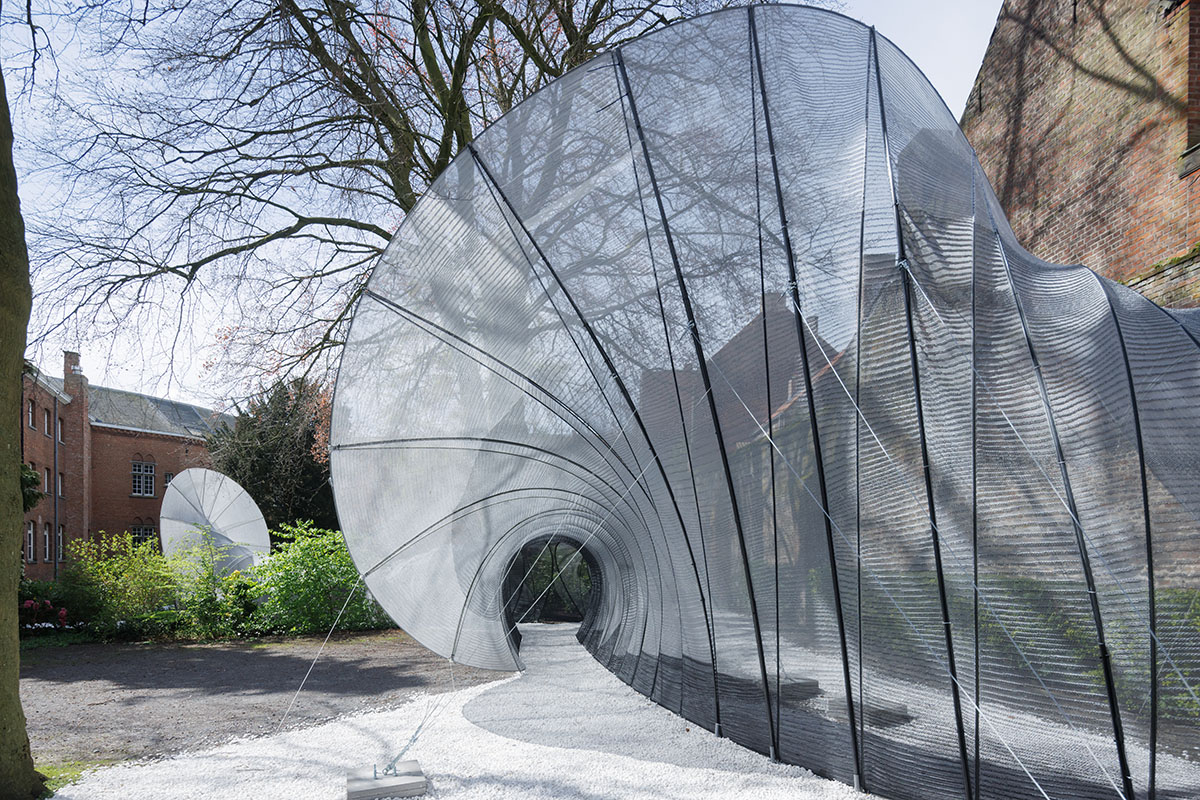
The tulle curtain-like curved passage makes the inaccessible 19th-century monastery courtyard look magnificent.
Called Common Thread, the 100-square-metre installation was designed by New York-based interdisciplinary architecture and design studio SO-IL for this year's Bruges Triennial 2024 which takes place from 13 April to 1 September in the centre of Bruges and the beach at Zeebrugge.
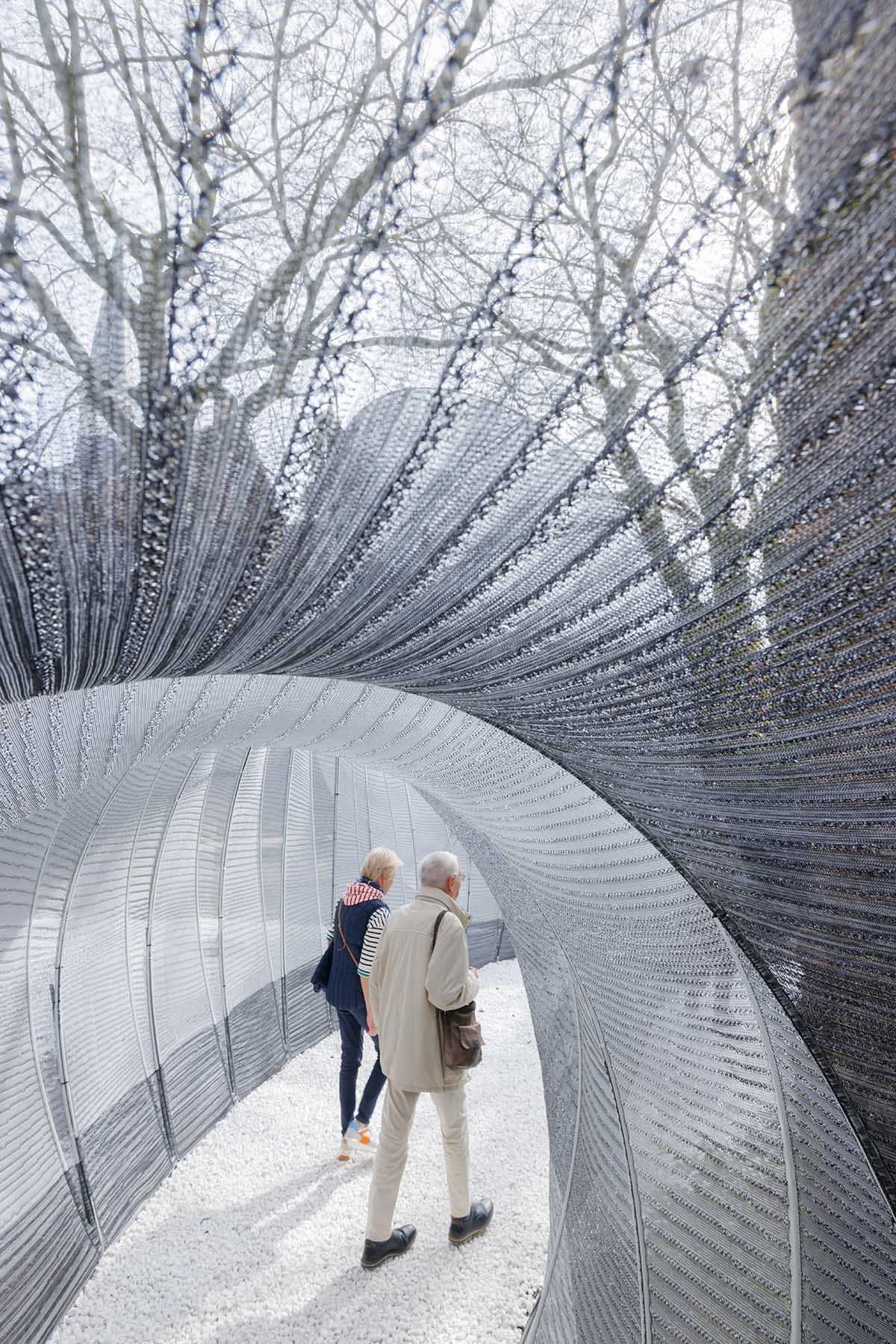
SO-IL has created a wave-like tunnel referencing to the medieval city’s lace-making tradition. The installation is made of an innovative woven fabric to create an intricate spatial experience in a transparent passage.
Made of a 3D knit textile, the installation connects a previously inaccessible 19th-century monastery courtyard in Bruges back to the city. It attracts visitors by stepping out into a sunny courtyard and allowing serendipitous exploration of history, craft and technology.
"The transformed garden contains multiple worlds, threading past and future, form and matter, memory and space, against the rich backdrop of the monastery's surroundings," said SO-IL, led by Jing Liu and Florian Idenburg.
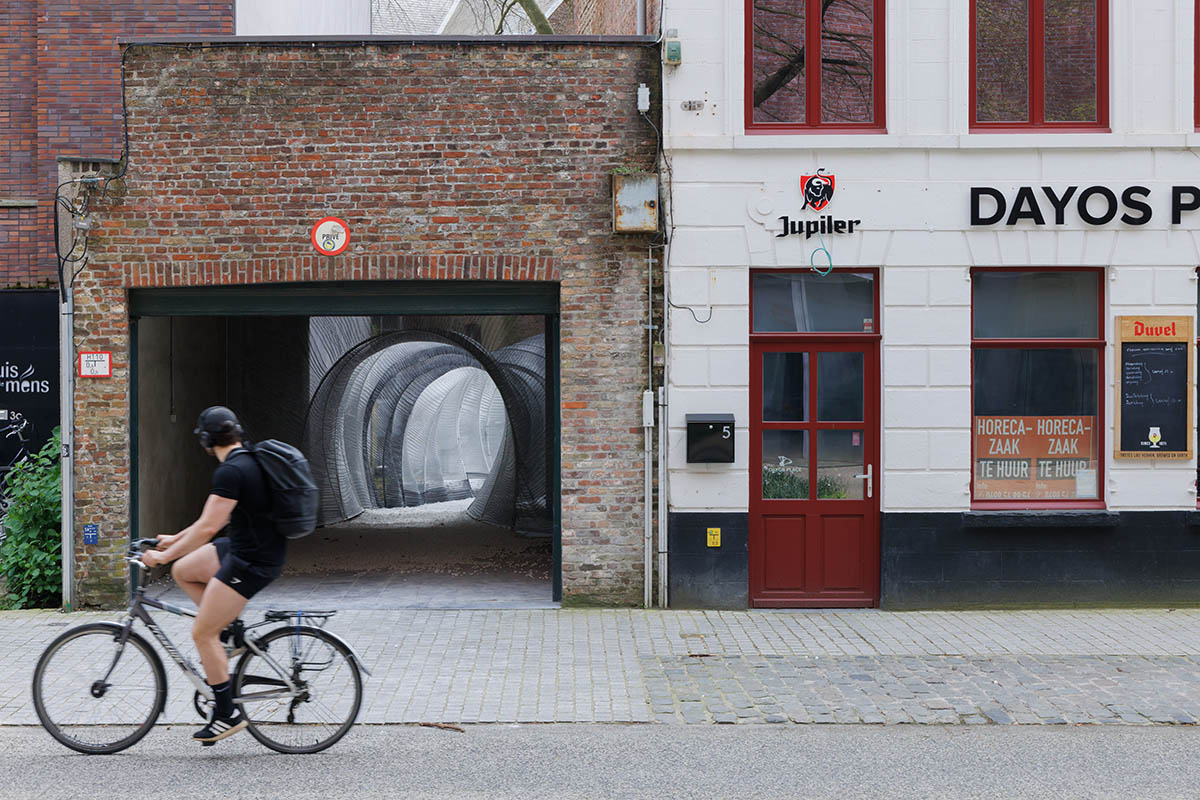
Thanks to its wave-like structure, the installation was installed to activate the historic space, connecting it with the streets of present-day Bruges and creating an urban conduit between districts.
"An unassuming entryway invites visitors to meander through playfully spiraling tunnels, ejecting them into the sunlit courtyard before guiding them to pivot and continue their journey," said the studio.
"Once a hidden retreat, the monastery’s garden is transformed into a playground for serendipitous encounters and exploration."
"Inspired by the city's textile legacy, our installation pays homage to a centuries-old history of lace-making, and the embedded knowledge passed down by the women of Bruges through generations," the studio explained.

According to the studio, the celebrated tradition of bobbin lace is still sold in the city’s shops and ancient béguinage, which inspired the studio "to reimagine this intricate process on a different scale using modern technologies."
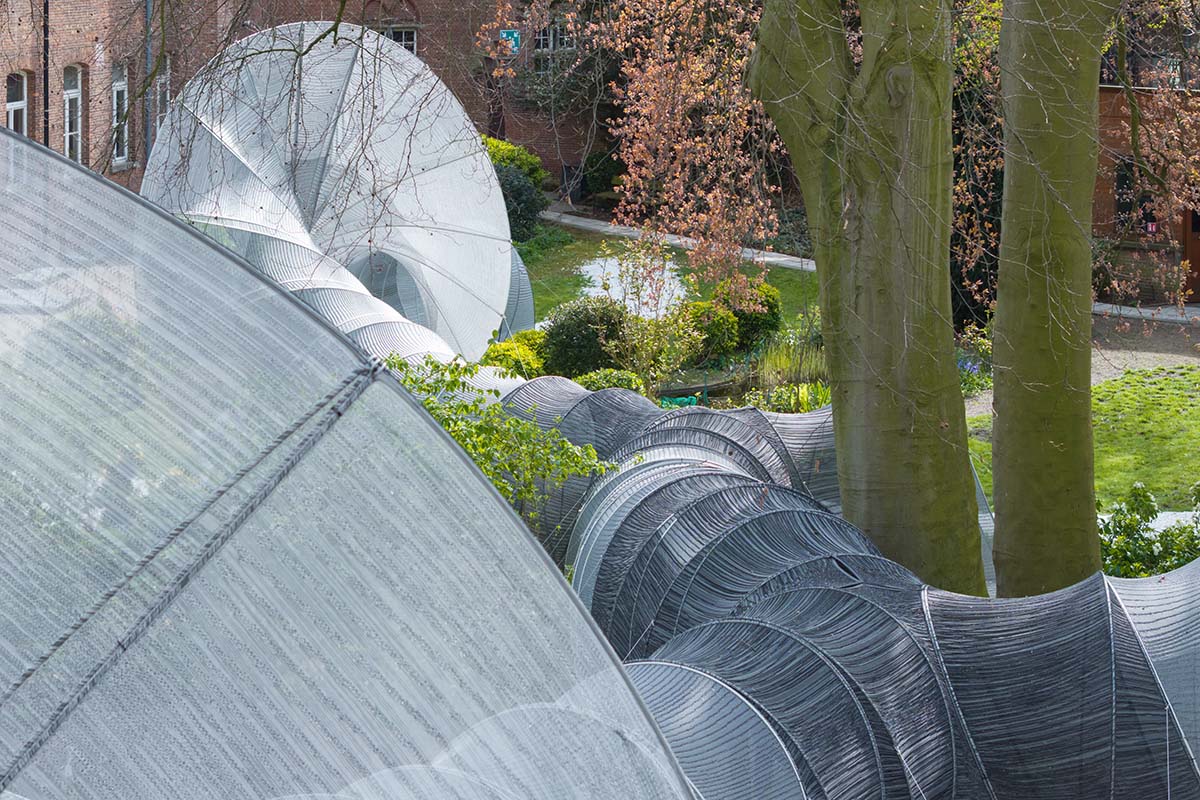
SO-IL collaborated with Dr. Mariana Popescu, and her assistant Anass Kariouh at TU Delft to create this fabric with the help of a programmable 3D knitting machine. Together with the team embarked upon an exploration of the geometric possibilities unleashed by innovative fabrication techniques.
"The resulting fabric is knit into varying ratios, its individual threads combining and diverging into surprising, ever-changing patterns whose character is reminiscent of Hokusai’s “The Great Wave," said the team.
"Interlaced with the craft heritage of Bruges is our firm’s own history, this being the latest in a lineage of pursuits in structural research."
"Alongside collaborators at Summum Engineering, we evaluated computational simulations and material samples, guiding form and structural framework," the team added.

The dynamic design builds upon previous explorations, continuing to experiment with finding the bend, play, elasticity, and pliability in standardized materials.
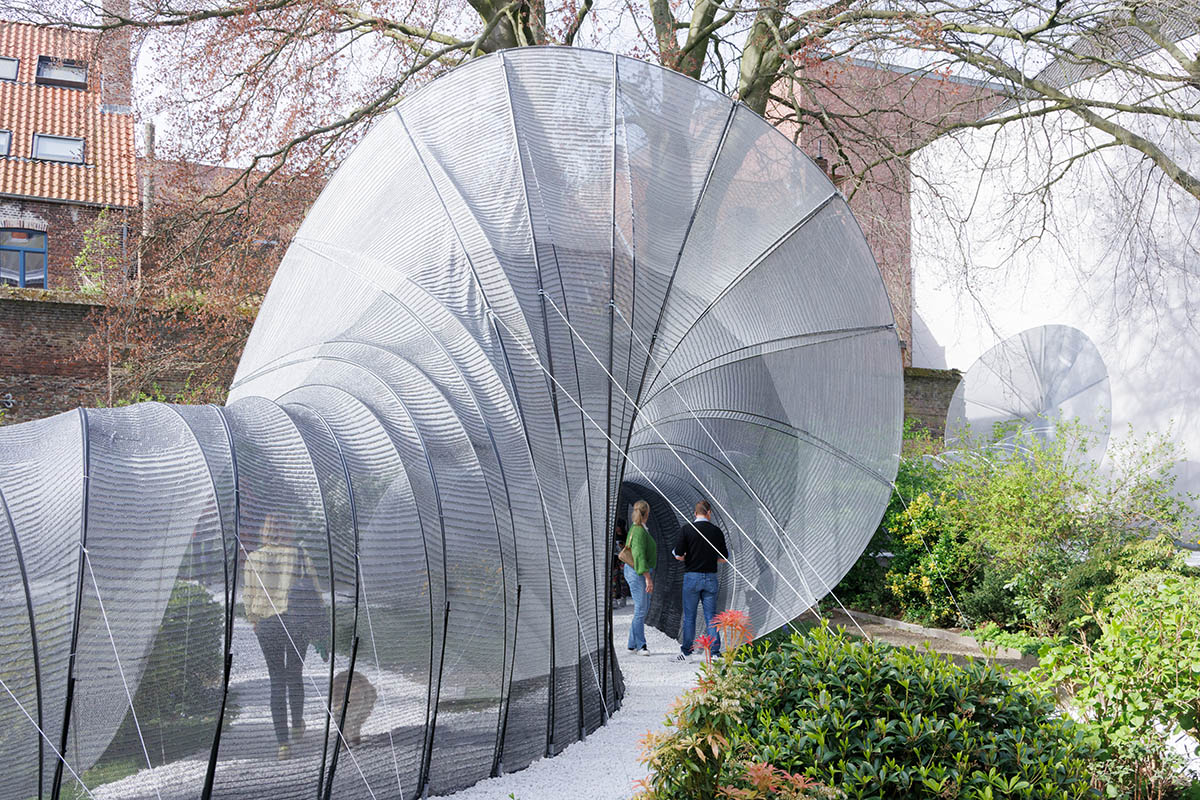
Common Thread ties the traditions of the past to the possibilities of the future via the timeless beauty of pattern-making.
By scaling up a common craft to create a singular piece of architecture, an intricate process becomes a spatial and explorable intersection between history, technology, and discovery.

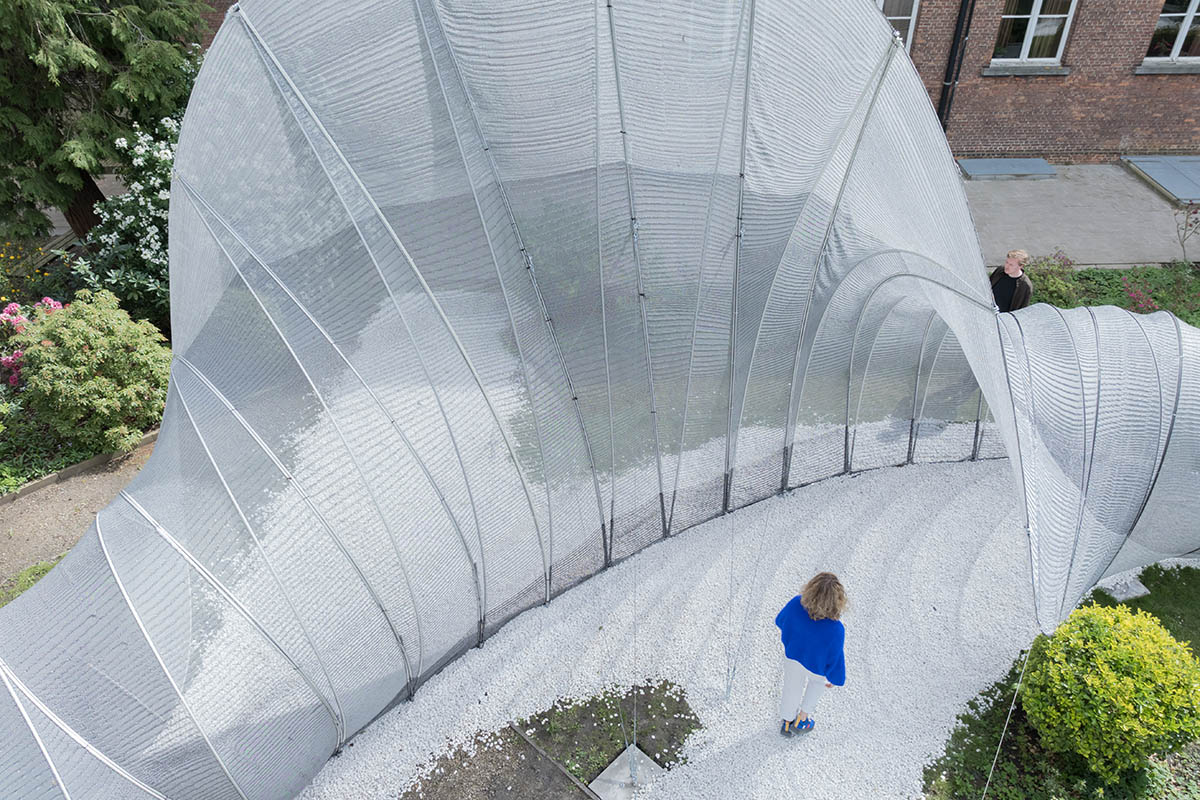
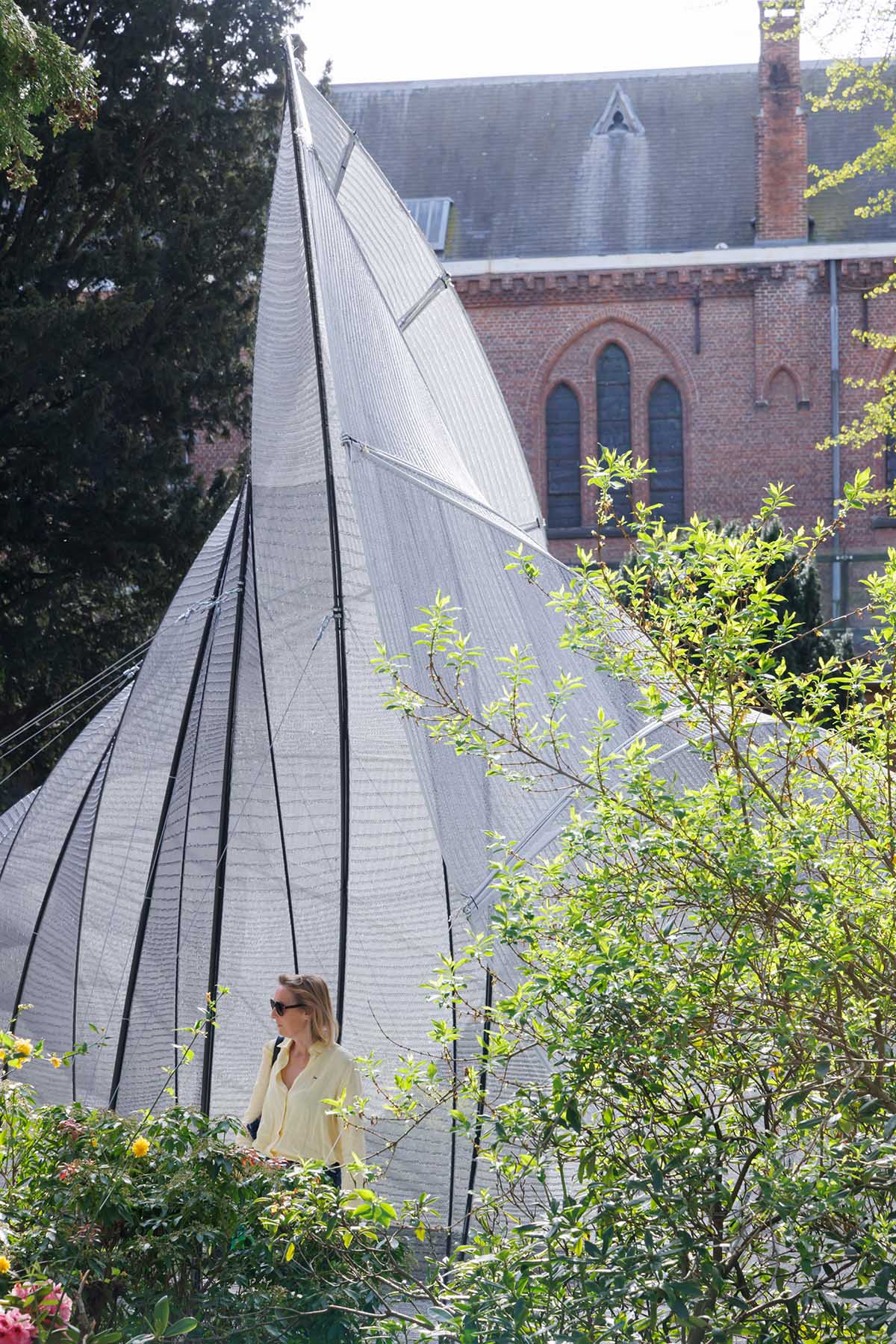
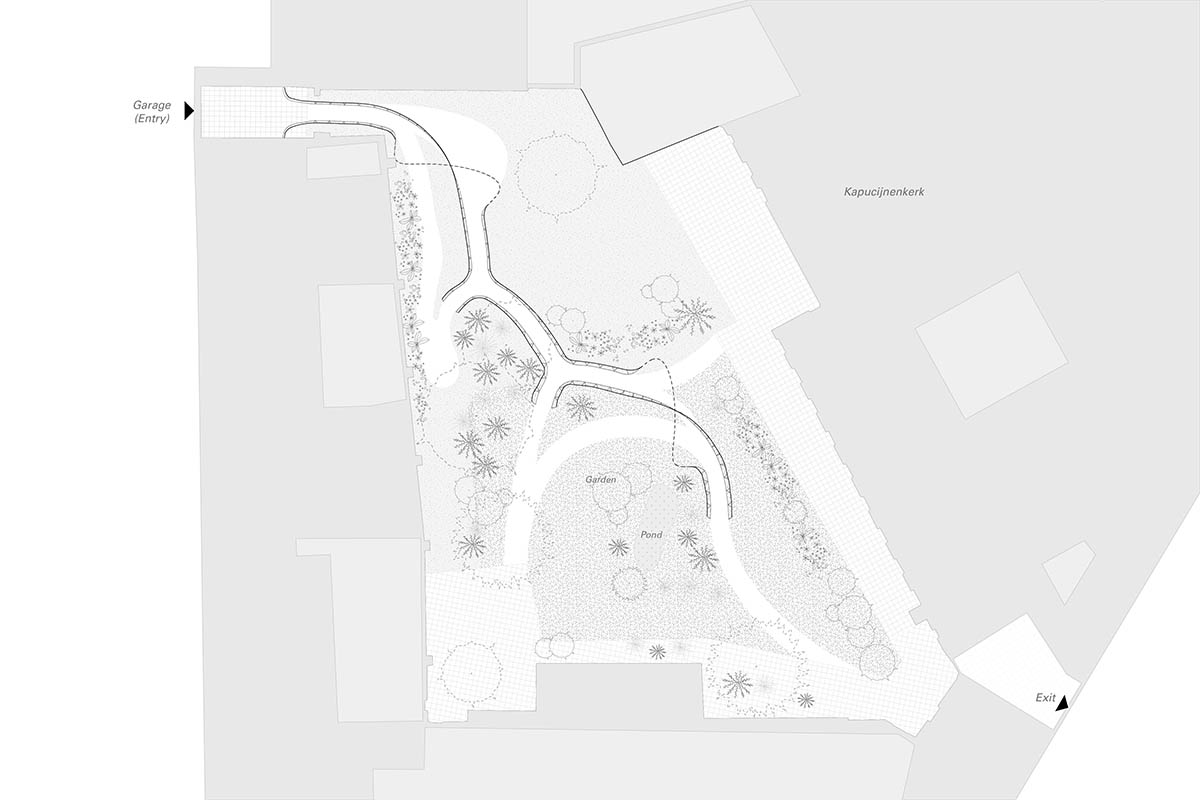
Plan
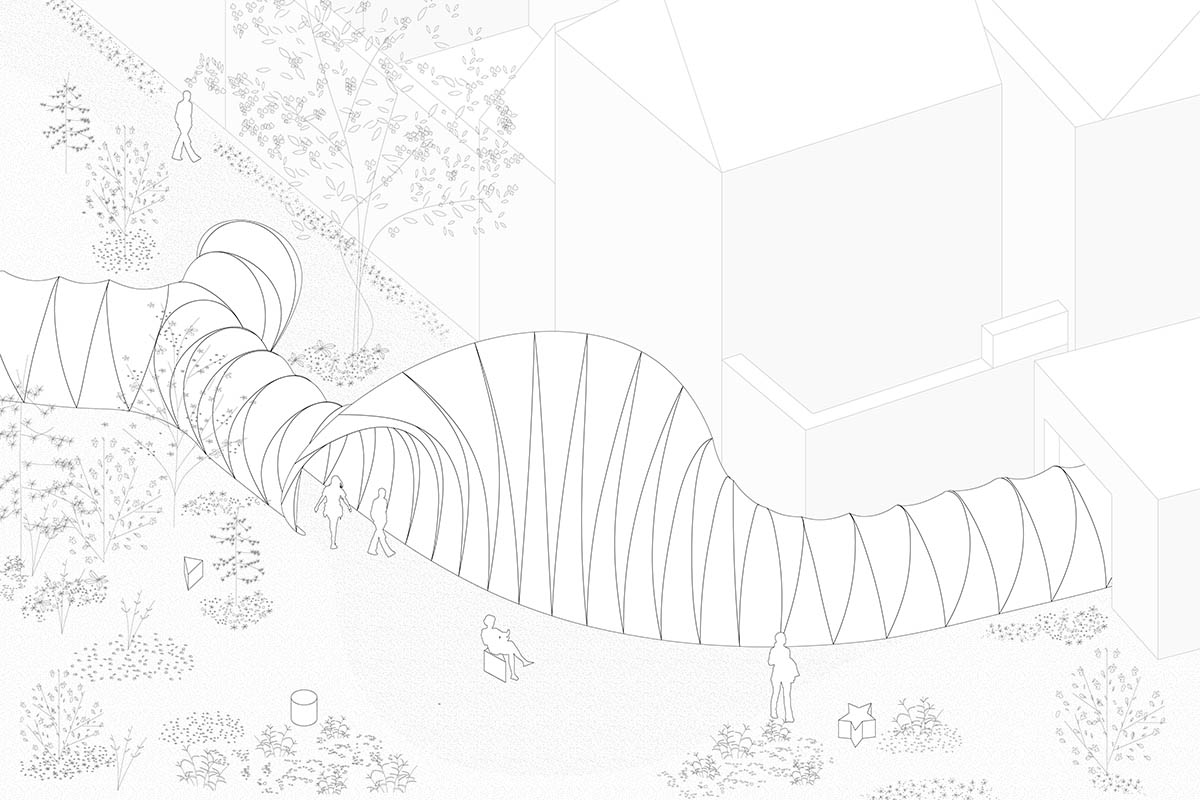
Axonometric drawing
SO-IL was founded by Jing Liu and Florian Idenburg in 2008 in Brooklyn. The practice is known for its innovative projects that inspire "intellectual and social engagement".
The studio unveiled design for a new campus art museum featuring undulating timber ceilings in Williamstown, Massachusetts, United States.
SO-IL and Paris-based firm FREAKS expanded an 18th-century glass factory with an undulating concrete plaza that activates three independent yet interrelated institutions in Meisenthal, France.
Project facts
Project name: Common Thread
Architects: SO-IL
Location: Bruges, Belgium
Design Team: Jing Liu, Florian Idenburg, Fabian Puller
Membrane design & production: Dr. Mariana Popescu Anass Kariouh
Engineering: Diederik Veenendaal, Alessio Vigorito, Anand Shah
Assembly contributions: Nick Gereels, Valentin Lorenzen da Silva, Jade Verlinde, Jean-Pierre Gereels, Frieder Ringel, Robin Oval
Courtyard area: 1300 m2
Membrane surface area: 300 m2
Covered area: 100 m2
Number of arcs: 180
All images © Iwan Baan.
All drawings © SO-IL.
> via SO-IL
3Dknitting adaptive reuse digital fabrication installation recycled SO-IL
